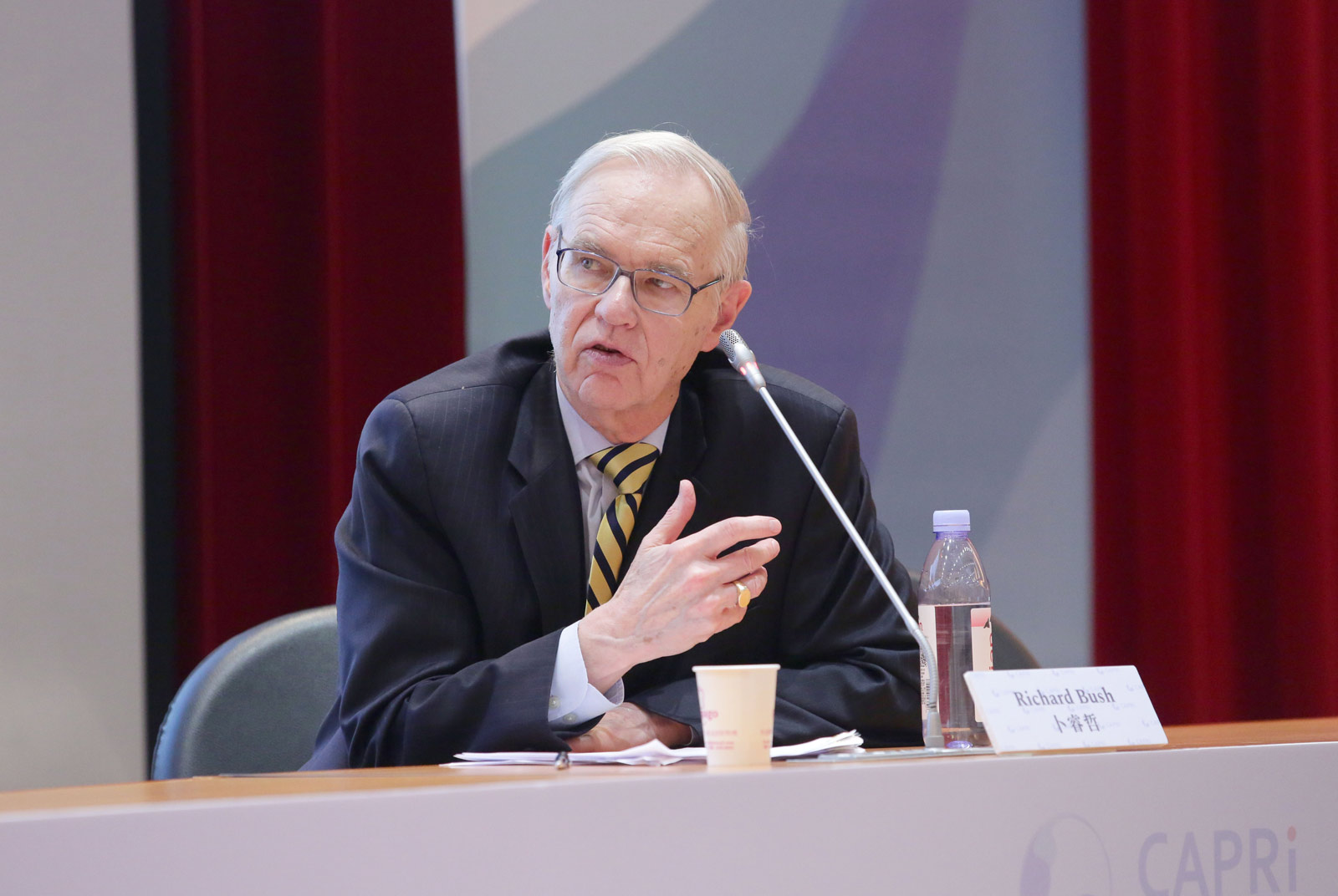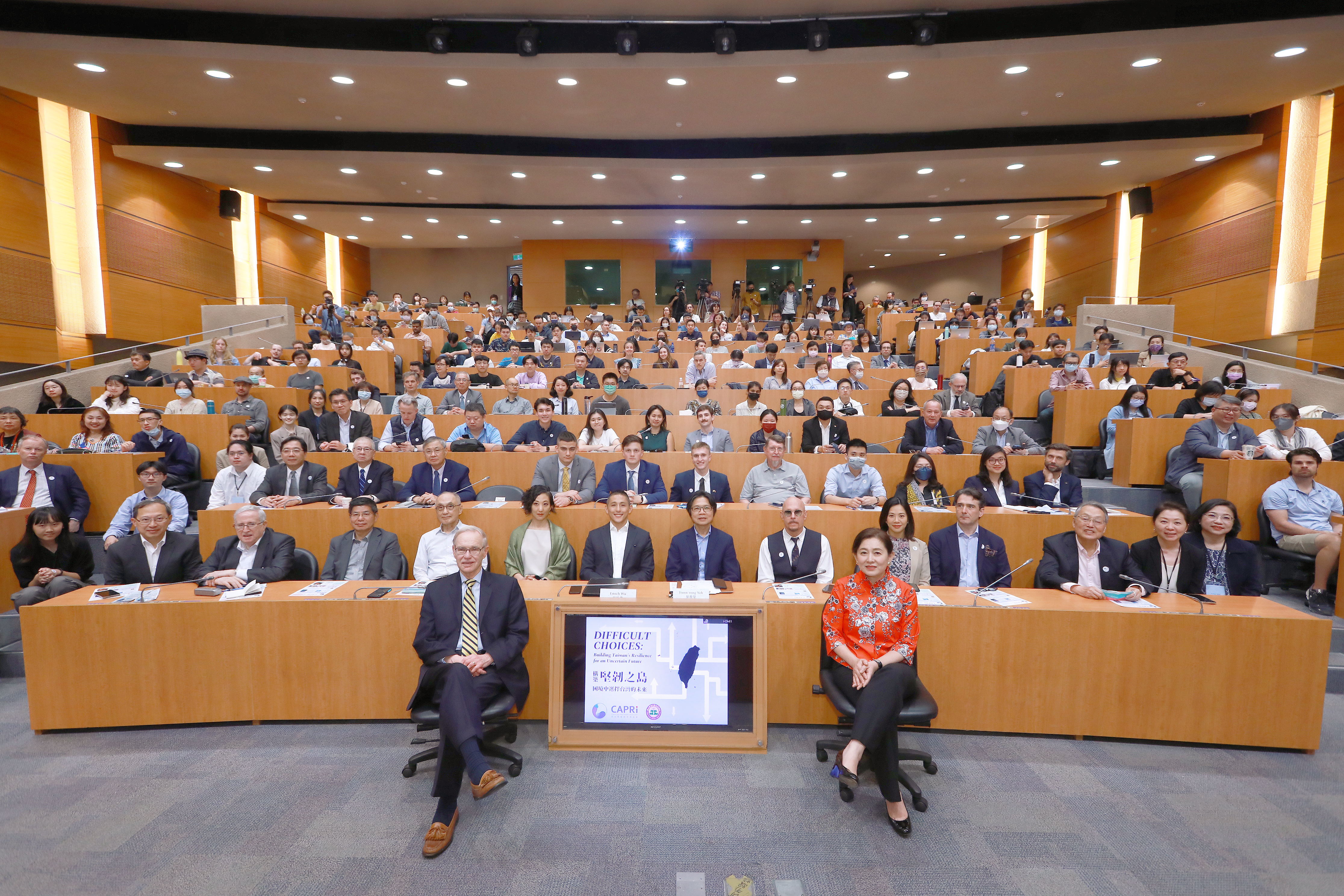Richard Bush: US and Taiwan must work together to deter China

Source:CAPRi
Richard Bush: former Chairman of the American Institute in Taiwan, on the difficult choices facing Taiwan
Views
Richard Bush: US and Taiwan must work together to deter China
By Elizabeth Frostweb only
Taiwan and the US “have to work together” to address the threat posed by China, said Richard Bush, former Chairman of the American Institute in Taiwan. Bush, the author of Difficult Choices: Taiwan’s Quest for Security and the Good Life also shared that he felt the Taiwan-US relationship is, in some ways, “better than it’s ever been.”
Speaking at the CAPRi Difficult Choices Forum: Building Taiwan’s Resilience for an Uncertain Future last week, Bush underlined the challenges Taiwan is facing - both internationally and domestically.

Enhancing deterrence
China’s current approach to Taiwan is one of coercion - a strategy Bush describes as an intermediate option “that is lower risk but still has a chance of success in the long term.” Amidst continued Chinese coercion, Bush said the US needs to bolster the confidence of the Taiwanese people through well-conceived symbolic actions.
Despite maintaining that he does not believe war is likely in the near term, Bush nonetheless warned that if PRC leaders perceive - or misperceive - a move towards independence, they could launch a major military operation against Taiwan.
Acknowledging that the risk of conflict is “not zero,” Bush emphasized the need for the US and Taiwan to cooperate on reducing the risk by enhancing deterrence. He pointed to increased US arms sales to Taiwan, and Taiwan’s expanded defense budget, as steps in the right direction.
Increasing the number of well-trained soldiers is another key element of deterrence and could “dissuade Beijing from starting the fight in the first place,” said Bush.
Bush expressed his support for the Taiwanese government’s recent decision to extend military service from four months to one year, although cautioned that conscripts must be well-trained. “Different kinds of training are needed, such as learning how to use and maintain weapons; operate in small units and in larger formations; and defend the beaches, lowlands, and large cities,” he suggested.
“Conscription is not just about defense, it needs to be about citizenship and service.”
Enoch Wu, founder of Forward Alliance, and a panelist at the forum, agreed that increasing deterrence is the only way for Taiwan to reduce the risk of attack. Recognizing the need for more well-trained soldiers, Wu insists that national service must be “transformed beyond what we’ve seen to date.”
As the expansion of national service is politically controversial, not to mention expensive, Taiwan must ensure the training provided is meaningful and fosters a sense of citizenship amongst the young people putting their lives and careers on hold to serve.
“Economic growth is equal to deterrence”
Bush warns that despite being a “pretty wealthy country,” the Taiwanese government “simply doesn’t have the resources to reflect the growing policy challenges facing it,” and as such, tax reform should be considered.
Also speaking at the event, Alicia Garcia Herrero, Chief Economist for Asia Pacific at Natixis, stressed that “prosperity is implicit deterrence.” She called on Taiwan to mobilize its reserves, perhaps through a sovereign fund, to increase its international leverage and soft power.
Given Taiwan’s direction of trade remains concentrated on China, cross-strait relations are still a key factor in Taiwan’s prosperity. As such, “the US should not damage Taiwan through its policy,” and should hold discussions with local leaders to understand Taiwan’s interests, said Bush.
An aging population
Among the domestic challenges facing Taiwan, Bush identified Taiwan’s aging population as posing a challenge to continued economic prosperity and exposing gaps in the national healthcare system.
However, retirees also have an important role to play in deterrence and could utilize their skills and free time as part of a territorial defense force. Many retirees have attended Forward Alliance’s crisis response training sessions, which empower citizens to play a direct role in enhancing Taiwan's resilience. “If we provide meaningful training, if we respect people’s time, the public will come,” said Wu.
A divided Taiwan is a weaker Taiwan
Like all democracies, Taiwan often faces problems of policy gridlock as a result of conflicting priorities between different political forces. Taiwanese society must work together to confront the difficult choices it faces if it wants to succeed, said Bush.
Bush called on Taiwan’s political leaders to “come together to formulate a coherent set of policies that address current and future challenges on cross-Strait relations.”
He identified several identify several principles that Taiwan’s political parties could agree on to demonstrate unity:
-
State their joint expectation that Beijing will remain neutral—in word and deed—in Taiwan’s elections and that it will respect the result.
-
Agree on the acceptable degree of Taiwan’s dependence on the Mainland economy. Depending on that assessment, create an appropriate legal, policy, and institutional framework.
-
Develop a cross-party approach to cross-Strait political relations that conveys objectively credible reassurances about Taiwan’s future course. For example, the DPP could suspend the independence clause of the party charter.
-
Make clear that Taiwan will not engage in political talks as long as they are based, explicitly or implicitly, on Beijing’s one country, two systems formula. The formula should be created through negotiations, not before negotiations even start.
-
State, as a matter of basic principle, that any change in Taiwan’s legal identity must be approved by passing constitutional amendments.
In his closing remarks, Bush stressed that the people of Taiwan deserve strong leadership from their leaders and that the difficult choices must be faced - together.
“There may come a day when the people of Taiwan must make a fundamental choice about their long-term future. If that happens, it is vitally important that this choice be made democratically, so that the people have their say.”
“That choice should be made in accordance with the ROC constitution. And it must be a smart choice, crafted by this society’s best minds and based on the best interests of the population at large. Making a smart choice is not always easy for a democracy to do, but in this case, it is a necessity,” Bush concluded.
Follow this link to read Bush’s remarks.






